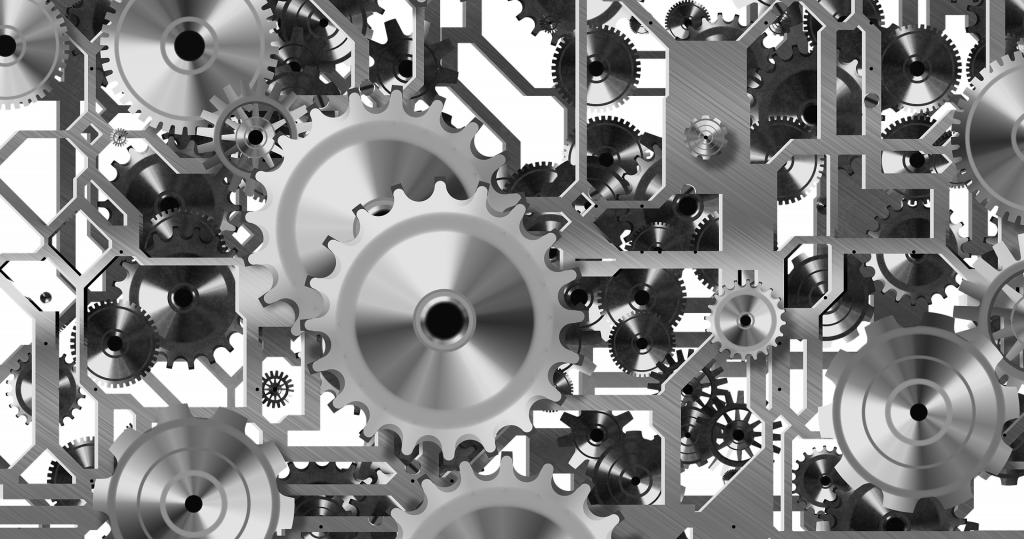Background and Rationale
The Bachelor of Engineering, henceforth referred to as BEng, in Mechanical & Aerospace Engineering is not a completely new program and it has been operating, under the name Bachelor of Engineering in Mechanical Engineering, since August 2011. The first batch of students graduated in 2015, with the second batch following in June 2016. Students’ interest in this program has increased over the years reaching a currently stable number of around 40 new admissions per year.
As revealed by the external advisors in the Industrial Advisory Board in the Department of Mechanical & Aerospace Engineering, a high demand for mechanical and aerospace engineers is anticipated in the forthcoming years. The current blooming of industrial development in Kazakhstan, as highlighted by the Expo 2017 developments “Future Energy”, the LRT project in Astana, and many other projects in Kazakhstan reinforce the high demand for mechanical & aerospace engineering graduates. Further opportunities are raised in many directions as highlighted by the “100 Steps” plan of economic development of Kazakhstan. The mechanical & aerospace engineering graduates are expected to be both academically and technically competent to meet the requirements of the industry worldwide. Recent graduates of the Mechanical & Aerospace Engineering program either go on further study or enter into the relevant work force shortly after graduation.
Aims
The BEng program in Mechanical & Aerospace Engineering aims to provide the education and training that will enable its graduate to:
- Acquire strong fundamental scientific and technological knowledge base with critical thinking skills necessary for life-long learning and to pursue a variety of aerospace and/or mechanical engineering careers in industry, academic, and research within Kazakhstan or abroad;
- Apply engineering skills incorporating the use of standards, computers, experiments, and realistic constraints to analyze, design, and solve problems associated with the aerospace and/or mechanical engineering profession;
- Understand the moral obligations, ethical standards, and professional integrity of aerospace and/or mechanical engineering practice and have an awareness of safety, legal, environmental, and social impact on the role of the engineering professional in a multicultural, global economy; and
- Develop the foundation for leadership through the abilities to communicate effectively technical and professional information as well as to work independently or as member in teams.


Learning Outcomes of the Program
On successful completion of the BEng (Hons) in Mechanical and Aerospace Engineering program, students will be able to:
- identify, formulate, and solve complex mechanical & aerospace engineering problems by applying principles of engineering, science, and mathematics,
- develop innovative engineering design processes and solutions for mechanical and aerospace engineering products and systems that meet specified needs with consideration for public health and safety, and global, cultural, social, environmental, economic, and other factors as appropriate to the discipline,
- develop and conduct appropriate experimentation, analyze,and interpret data, and use engineering judgment to draw conclusions,
- communicate effectively with a range of audiences, demonstrating professional and ethical responsibility,
- recognize ethical and professional responsibilities in engineering situations and make informed judgments, which must consider the impact of engineering solutions in global, economic, environmental, and societal contexts,
- recognize the ongoing need to acquire new knowledge, to choose appropriate learning strategies, and to apply this knowledge,
- function effectively as a member or leader of a team that establishes goals, plans tasks, meets deadlines, and creates a collaborative and inclusive environment.
CAPSTONE PROJECT
The Capstone Project is a 2-semester common course for all engineering programs which spans across the fall and spring semesters of the same academic year. The importance of the Capstone project is reflected in the total number of credits it carries, being 12 ECTS which are equivalent to two standard-sized courses.
One of the important features of the Capstone Project is “learning by doing”. It is intended to be a platform for the students to develop their intellectual and innovative abilities and to give them the opportunities to integrate and apply the knowledge and analytical skills gained in previous stages of study. It should also provide students with opportunities to develop their problem-solving skills and communication skills. The process from concept to final implementation and testing, through problem identification and the selection of appropriate solutions will be practiced by the students.
Program Specified Courses
Nazarbayev University has adopted the Bologna Accord and the School of Engineering therefore uses the European Credit Transfer System (ECTS). Most courses to be studied at Year 1, Year 2, Year 3, and Year 4 are of standard credit value carrying 6 ECTS each, except for some courses, such as Calculus I, etc. which carry ECTS other than 6. A student is expected to spend about 25 to 30 hours of study per semester (inclusive of class contact and other study effort) for 1 ECTS. The following Table lists the subjects, their ECTS values, and the category they belong to (Compulsory, Optional, or Elective). All discipline-specific courses shown as compulsory are non-deferrable and must be taken in accordance to the progression pattern. The courses offered will be updated from time to time according to the need of society and the profession.
| MAE Requirements | ECTS credits |
| NU Core Courses | |
| SHSS 150 Rhetoric and Composition | 6 |
| SHSS 210 Technical Writing | 6 |
| Kazakh Language courses | 12 |
| HST 100 History of Kazakhstan | 6 |
| ECON 323 Managerial Economics | 6 |
| PHYS 161 Physics I for Scientists and Engineers | 8 |
| MATH 161 Calculus I | 8 |
| ENG 101 Programming for Engineers | 6 |
| XXXX Fundamentals of Entrepreneurship and Management | 6 |
| ENG 100 Introduction to Engineering | 6 |
| PHIL 210 Ethics/ PHIL 211 Practical Ethics/ PHIL 212 Ethical Reasoning | 6 |
| Total ECTS credits | 76 |
| SENG Core Courses | |
| MATH 162 Calculus II (with labs) | 8 |
| ENG 102 Engineering Materials I | 6 |
| PHYS 162 Physics II for Scientists and Engineers (with labs) | 8 |
| ENG 200 Differential Equations and Linear Algebra | 6 |
| ENG 201 Applied Statistics | 6 |
| ENG 202 Numerical Methods in Engineering | 6 |
| ENG 400 Capstone Project | 12 |
| Total ECTS credits | 52 |
| MAE Core Courses | |
| MAE 200 Structural Mechanics I | 6 |
| MAE 201 Computer Aided Design | 6 |
| CEE 201 Environmental Chemistry | 6 |
| MAE 206 Engineering Dynamics I | 6 |
| MAE 205 Materials and Manufacturing I | 6 |
| MAE 300 Fluid Mechanics I | 6 |
| MAE 301 Engineering Thermodynamics | 6 |
| MAE 302 Machine Elements Design | 6 |
| MAE 303 Control Systems | 6 |
| MAE 305 Fluid Mechanics II | 6 |
| MAE 307 Engineering Dynamics II | 6 |
| MAE 306 Computer Aided Engineering | 6 |
| MAE 400 Heat Transfer | 6 |
| MAE 401 Mechanical Systems Design | 6 |
| Total ECTS credits | 84 |
MAE Elective Courses
Students should choose 6 elective courses on the basis of primary and secondary areas among materials & manufacturing, aerospace engineering, thermofluids & energy applications, system dynamics & control, design & analysis. Elective courses could be changed from time to time to address the industry demand and the faculty expertise.
Materials & Manufacturing
- MAE 350 Structural Mechanics II (Prerequisite: Structural Mechanics I)
- MAE 456 Materials and Manufacturing II
Aerospace Engineering
- MAE 351 Vehicle Propulsion Systems
- MAE 454 Aerodynamics (Prerequisite: Fluid Mechanics II)
- MAE 455 Flight Mechanics (Prerequisites: Engineering Thermodynamics & Fluid Mechanics II)
Thermofluids & Energy Applications
- MAE 450 Heating Ventilating & Air-Conditioning
- MAE 453 Fire Engineering (Prerequisites: Engineering Thermodynamics & Fluid Mechanics II)
- MAE 457 Feasibility Analysis of Clean Energy Technologies
- MAE 461 Advanced Heat Transfer (Prerequisite: Heat Transfer)
System Dynamics & Control
- MAE 458 Fundamentals of Multi-Body Dynamics (Prerequisite: Engineering Dynamics II)
- MAE 459 Advanced Control Systems and Industrial Automation (Prerequisite: Control Systems)
- MAE 451 Oscillations of Mechanical Systems (Prerequisite: Structural Mechanics I)
Design & Analysis
- MAE 452 Computer Aided Geometric Design (Prerequisite: Computer Aided Design)
- MAE 460 Advanced Topics in Computational Fluid Dynamics (Prerequisites: Fluid Mechanics I & Numerical Methods in Engineering)
Student who wants to conduct research can choose the following elective course:
- ENG 300 Interdisciplinary Design Project
Most of the elective courses are developed and taught in the School of Engineering. However, courses from other schools may be considered as electives if approved by the Department of Mechanical and Aerospace Engineering and the School of Engineering.




